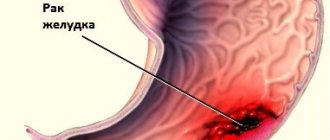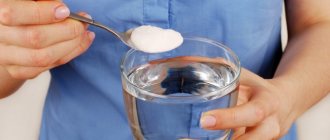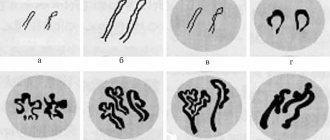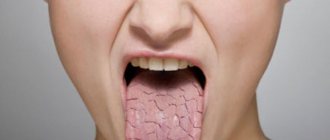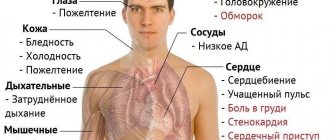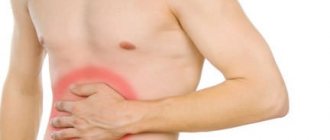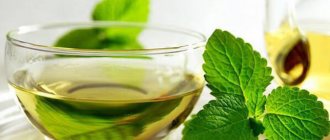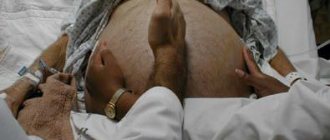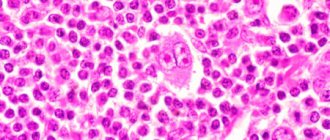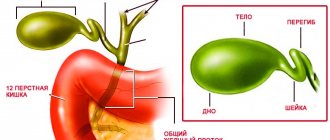10/11/2017 Olga Migunova 3 comments
Erythematous gastropathy is an endoscopic sign that is often detected during fibroesophagogastroduodenoscopy. Various factors can contribute to the appearance of this symptom, ranging from an unhealthy diet to stress.
Timely elimination of the causative factor and correct treatment tactics make it possible to quickly and completely eliminate erythematous gastropathy.
Therefore, in this topic we want to tell you in detail about the causes and signs of erythematous gastropathy, as well as how to deal with this problem.
General information
Erythematous gastropathy is inflammation, redness and swelling of the gastric mucosa, caused by the influence of a number of negative factors or bacterial damage.
Quite often, erythematous gastroduodenopathy associated with damage to the pylorus of the stomach and part of the duodenum is diagnosed in parallel. The above conditions are not considered an independent nosology; these symptoms are diagnosed during clinical examinations of the patient. If gastropathy is detected, it is recommended to review your lifestyle and diet as soon as possible in order to avoid the development of gastritis and subsequent peptic ulcer of the digestive tract.
Erythematous gastropathy and gastroduodenopathy can provoke the development of bulbopathy - an inflammatory process in the loop connecting the duodenum to the intestine. The pathologies described above can occur simultaneously or sequentially as a result of exposure to chemicals or pathogenic microorganisms.
Consequences
There are two most common complications of erythematous gastropathy: gastritis and peptic ulcer. Sometimes, if this pathology is not treated, the mucous layer of the stomach may atrophy. In turn, against the background of atrophy of the mucous membrane, a malignant tumor of the stomach may appear.
Having seen the diagnosis of erythematous gastropathy in the conclusion of FEGDS, you should not be afraid, but you also should not ignore it. In this case, it is recommended to consult a gastroeterologist or general practitioner. If necessary, specialists will conduct additional research and give treatment recommendations that will allow you to avoid the above complications.
Classification
Pathology is divided into 2 types:
- Focal erythematous gastropathy . Characteristically, only part of the mucous membrane is affected (pylorus, antrum). Small areas of inflammation appear on the mucous walls. Focal gastropathy is easier to treat than other forms. Diet therapy is effective.
- Common gastropathy . The inflammatory process and redness covers the entire gastric mucosa. In the absence of adequate, competent therapy, the pathology develops into acute gastritis with the subsequent development of peptic ulcer of the digestive tract.
Gastropathy is also divided into several forms:
- Erosive . The upper part of the stomach is affected. Concave erosions of small diameter (about 7 mm) form on the mucous wall. gastritis develops . The main difficulty in diagnosis is the lack of clinical symptoms that can help in diagnosis. Pathology is a random finding during examination.
- Stagnant . Small wounds appear on the mucous membranes. Patients complain of discomfort after eating, belching, and heartburn.
- Papular . It affects the lower part of the stomach in the form of small ulcers on the mucous wall. Develops against the background of increased acidity of gastric juice. It is practically asymptomatic.
- Antral gastropathy . Characteristically, the lower antrum of the stomach is affected, as a result of which the food bolus slowly moves towards the duodenum and is difficult to crush. Food stagnates and fermentation processes begin. In the absence of timely and competent therapy, gastritis develops with atrophic damage to the mucous membranes of the gastrointestinal tract.
Erythematous-exudative gastropathy is a finding during gastroscopy. The exudative form involves the production of a small amount of exudate when damage occurs to the mucous membranes of the stomach.
Depending on the degree of damage to the epithelial layer, gastropathy is divided into:
- Erythematous gastropathy of the 1st degree of inflammation . Lesions of the epithelial layer in the digestive tract in grade 1 are minimal. The pathology is asymptomatic.
- Erythematous gastropathy of the 2nd degree of inflammation . Changes in the epithelial layer are minor, but noticeable. Grade 2 is characterized by a progressive course. The situation is aggravated when exposed to damaging factors. In adult patients, the disease becomes chronic.
Erythematous bulbopathy
A chronic inflammatory process affects the duodenal bulb, or rather its initial section, which is located immediately behind the final section of the stomach. The mucous membrane takes on a swollen appearance and red oval spots form on it. When erosive defects appear, they speak of erosive bulbopathy , which is the most severe form of bulbitis .
Erythematous colopathy
It is characterized by the appearance of erythematous spots on the walls of the small and large intestines. When exposed to unfavorable factors, erythema turns into erosion and ulcers.
What is papular gastropathy?
In this case, we are talking about damage to the mucosa as a result of increased acid production by the stomach, a decrease in the protective properties of mucus, and the presence of Helicobacter pylori infection in the antrum of the organ. To clarify the diagnosis and choose the path of treatment, intragastric pH-metry is necessary, as well as diagnostics for the presence of Helicobacter pylori. In addition, the doctor takes into account the patient’s concomitant complaints.
Umbilical-papular gastropathy of the gastric mucosa is characterized by the formation of many papules. The latter can be simple, aphthous or umbilical with a depression in the center.
Causes
Erythematous gastroduodenopathy and gastropathy develop under the influence of a number of unfavorable factors:
- Stress. Psychotraumatic factors stimulate the production of the hormone adrenaline , which enhances the production of hydrochloric acid. Prolonged exposure to high concentrations of gastric juice leads to irritation of the gastric mucosa, its redness, followed by the formation of ulcerative lesions and erosions.
- Unbalanced nutrition , diet . Long-term consumption of irritating and heavy foods causes inflammation in the gastric mucosa.
- Uncontrolled use of medications . Some medications have a negative effect on the functioning of the digestive tract, disrupting their normal functioning. Quite often, duodenopathy develops precisely while taking medications.
- Presence of Helicobacter pylori in the body . H. pylori is able to penetrate the gastric mucosa, triggering inflammatory processes in it.
- Heredity . The risk of developing erythematous gastropathy is very high if the pathology has ever been diagnosed in close relatives. In predisposed patients, the influence of even seemingly insignificant factors can trigger the development of a pathological process.
- Leading an unhealthy lifestyle . The lack of constant oxygen exchange, a sedentary lifestyle, and the presence of bad habits lead to stagnation in the body, which negatively affects the functioning of the digestive tract.
Complex treatment
To get rid of erythematous gastropathy, you should review your diet, eliminating heavy foods for the stomach. In most cases, changing your diet will help quickly restore the gastrointestinal tract.
The main treatment for erythematous gastropathy is a rational and balanced diet.Experts recommend using fractional, easily digestible meals, which allows the stomach to digest food faster. The optimal portion should not exceed 350 grams of food. The following dietary recommendations must also be followed:
- The temperature of food consumed should be no lower than 40 degrees. This will provide a gentle regime for the stomach. Food that is too cold or hot will irritate the mucous surface.
- Of course, you need to avoid consuming fatty, spicy, fried and salty foods. All food products must undergo high-quality heat treatment.
- Gastronomic preferences should be given to complex carbohydrates, which are contained in sufficient quantities in buckwheat, rice or wheat porridge.
- It is recommended to include fresh vegetables and fruits in your daily diet.
Protein is an essential ingredient of the dinner table, which is found in lean meat, fish, egg whites, nuts, cottage cheese, and legumes. You should forget about smoking and drinking alcohol. By following the diet recommended by your doctor, you can observe positive dynamics of recovery within a few days.
Healthy food for the stomach
However, each individual case should be considered individually, since the gender, age and physical condition of the patient are important. It is possible that the doctor will recommend not only a diet, but also pharmacotherapy and treatment of erythematous gastropathy with folk remedies.
Drug treatment
Medications will help restore the health of the gastric mucosa. The most effective for this type of disease are Gastrofarm and Gastrocepin.
These drugs have a protective effect on the mucous membrane of not only the stomach, but also the intestines. Gastrofarm contains biologically active additives - lactic, malic, nucleic acid, polypeptides and polysaccharides, which will provide the digestive organs with a protective effect, thereby restoring regeneration in the stomach and duodenum. A dosage form with a high protein content will provide an antacid and analgesic effect. The recommended dosage is determined by the attending physician.
Gastrozepin from the German manufacturer BOEHRINGER INGELHEIM INTERNATIONAL GmbH, contains the active substance - pirenzepine, which actively reduces the formation of sulfuric acid and increases the pH level in the stomach. The dosage form has certain contraindications for use. Therefore, the maximum permissible daily dose of the drug is determined by a consulting gastroenterologist.
Traditional treatment
Therapy at home should be agreed with a doctor. Basically, if there is no allergic reaction to natural components, then experts advise drinking medicinal herbal infusions and decoctions. However, the acidity level should be taken into account. Increased stomach acidity, characterized by frequent and severe heartburn, can be treated with birch bark infusion. The crushed natural ingredient (2 tbsp) is poured with 400 ml of boiling water and infused for 2.5-3 hours in a warm place. Take half a glass of homemade medicine 3 times a day. The course of treatment is 10-14 days.
Acidic stomach contents
Low stomach acidity causes nausea and unpleasant rotten belching. An effective alternative treatment can be cabbage juice, ½ glass 3-4 times a day. The course of treatment is 7-10 days.
See also: How to determine stomach acidity at home?
Symptoms
Erythematous gastropathy is characterized by a certain clinical picture. Main symptoms:
- discomfort in the epigastric region after eating;
- heartburn;
- belching;
- vomiting (rare);
- stool disorders (vomiting/diarrhea);
- nausea;
- a specific taste in the mouth with a putrefactive component;
- weight loss due to lack of appetite;
- decreased performance, deterioration in general well-being, lethargy and apathy.
Erythematous gastropathy is additionally manifested by the deposition of a white coating on the tongue, especially in the morning.
Change in general condition
Gastric erythema and inflammation can be caused by several reasons:
- blood circulation disorders;
- infectious diseases;
- chemical burns;
- medicinal (medicinal) gastritis;
- metabolic defects due to other diseases;
- poor nutrition;
- various irritating factors (alcoholic drinks, smoking).
Stress resistance and daily routine are also of great importance.
The possibility of the occurrence of the disease is determined by protective gastric factors, the resistance of the body as a whole and genetic characteristics.
Among the symptoms of a pathology such as erythematous gastropathy, the following are especially pronounced:
- Poor appetite. This symptom appears often, but not in all patients. Everything is determined by the prevalence of inflammation and its form. Experts say that the cause of this phenomenon is disturbances in the peristalsis of the inflamed organ.
- Stomach disorders and diarrhea syndrome, which appears in the process of transformation of gastric secretory processes. Along with this, the movement of chyme into the underlying sections of the digestive canal accelerates.
- Heartburn. Due to an increase in the secretion function of the stomach, insufficiency of the cardiac sphincter may occur, which causes the backflow (reflux) of gastric acid contents into the esophagus, which irritates the nerve endings mainly in the distal region of the esophagus.
- Nausea, which appears under the influence of poisons, toxic infections, damage to chewed and insufficiently processed food. Often precedes the onset of vomiting.
- Belching. This symptom rarely occurs, most often when the provoking cause of the disease is stressful situations. Belching is a consequence of dysfunction of the esophageal sphincter muscles.
- Vomit. A particularly common sign of this pathology. The stomach, through vomiting, seeks to remove all pathological substances from the body on its own and is a reflex defense mechanism.
- Pain in the upper abdominal regions. Feels like overeating. Due to the fact that the stomach wall is overstretched by food, the pain receptors of this organ are triggered. From these receptors, impulses go to the center of the brain, and the patient begins to feel pain.
- Bitter taste in the mouth.
- Dyspnea. Feeling of shortness of breath or difficulty breathing.
- Feeling of excessive coating on the tongue.
In addition to gastric disorders, pathology may have signs of a change in the patient’s condition as a whole, for example:
- rapid feeling of fatigue and lethargy;
- weakness;
- periodic headaches along with intestinal pathologies;
- pallor of the skin;
- decreased immune reactivity;
- jumps in blood pressure;
- sophistication of appetite and taste preferences.
Tests and diagnostics
Based on the examination of the patient, the results of laboratory and instrumental studies, a diagnosis of “Erythematous gastropathy” is made.
Laboratory research methods:
- fecal analysis (presence of occult blood, assessment of quantitative/qualitative composition, identification of atypical impurities);
- blood analysis;
- Analysis of urine;
- pH-metry;
- examination of gastric juice .
Instrumental methods for studying erythematous gastropathy and duodenopathy:
- Manometry. Allows you to evaluate the evacuation capacity of the digestive tract by determining the speed of motility.
- Electrogastroenterography.
- Fibrogastroduodenoscopy.
- Colonoscopy.
- Ultrasound of the stomach and intestines.
In difficult situations, computed tomography, MRI and other radiation diagnostic methods are prescribed. It is very important to correctly differentiate duodenopathy from gastrointestinal ulcers, gastritis , ulcerative colitis and other gastrointestinal pathologies of inflammatory and non-inflammatory nature.
Most often, erythematous gastropathy is an incidental finding during examination of the digestive tract for other reasons. If necessary, a biopsy of material taken from the stomach wall is performed.
Treatment of erythematous gastropathy with folk remedies
Among folk remedies, they most often resort to herbal medicine, which helps suppress the severity of the inflammatory process and heal wounds.
- Honey . Take a teaspoon of candied honey into your mouth and hold until completely dissolved, gradually swallowing. The procedure must be carried out three times a day.
- A decoction of three herbs . Chamomile flowers have an anti-inflammatory effect, nettle leaves promote wound healing, and oak bark has an astringent effect. All dried components are mixed in equal proportions, brewed and taken as a solution, 1 tablespoon after each meal. Preparation of the solution: pour boiling water (250 ml) into three tablespoons of the herbal mixture, let it brew for 2 hours and strain.
Treatment
Treatment of gastropathy should take into account the nature of the pathology and the reasons for its development. In case of acute gastropathy, it is necessary to eliminate the damaging factor, that is, rinse the stomach, because often this disease is caused by poor-quality products and food poisoning.
It is clear that in the chronic form, rinsing is useless. But you need to undergo examination to detect the presence of a bacterial infection.
If its pathogens are found, then you need to take antibiotics.
There are medications that are taken for any form of gastropathy. These are artificial enzymes, gastrocytoprotectors, painkillers, etc. They take medications to reduce the production of gastric juice. These may be so-called proton pump inhibitors - Omeprazole and its analogues. There are effective drugs that selectively block histamine H2 receptors and thereby prevent the production of hydrochloric acid. This is Ranitidine.
If bacteria are present, take medications such as Amoxicillin or Metronidazole. As for gastrocytoprotectors, they protect the gastric mucosa. These are Maalox and Almagel.
All unhealthy foods should be excluded from the diet: fried, pickled, smoked, very spicy and sour.
Replace it with healthy ones, that is, with foods rich in minerals and vitamins, fresh vegetables and fruits, boiled or stewed food.
One of the important factors of treatment is quitting smoking and alcohol
It is very important to maintain a water regime, you need to drink more clean water, at least two liters of clean water per day, natural herbal decoctions
No special drug treatment is required here. However, there are a few things I can recommend. The following drugs will help restore the mucous membrane:
- Gastrofarm;
- Maalox;
- Almagel.
Their astringent effect protects the stomach and speeds up the healing process. Folk remedies are quite effective. The simplest and most accessible is a gastric collection, which is sold in any pharmacy. You should infuse it according to the instructions and drink it.
In cases where erythema in the stomach appears as a result of taking medications, you must inform the doctor who prescribed them. If possible, the drug will be discontinued or replaced with another that is safer for the stomach. But it happens that the treatment cannot be replaced by another, so the drug that caused gastropathy must be covered with a gastroprotector (Omeprazole, Rabeprazole, Pantoprazole) or an antacid (Phosphalugel, Almagel).
When the pH of gastric juice increases, patients are prescribed drugs that reduce acidity, namely:
- proton pump inhibitors (Omeprazole, Rabeprazole, Pantoprazole and others);
- antacids (Almagel, Phosphalugel);
- bismuth preparations (Vis-Nol, De-Nol).
Also included in the treatment regimen are gastroprotectors (Gastrocepin, Gastrofarm), which protect the gastric mucosa and accelerate its recovery.
If Helicobacter pylori is detected in the stomach, then patients are prescribed anti-Helicobacter drugs (Metronidazole, Amoxicillin).
All medications should be prescribed exclusively by the attending physician, since each medicine has a number of side effects and contraindications.
In difficult cases, when conservative therapy does not help, surgical intervention may be considered, during which the affected area of the stomach will be removed.
Diet for erythematous gastropathy
Diet for erythematous gastropathy
- Efficacy: therapeutic effect after 14 days
- Terms: 14-21 days
- Cost of products: 1500-1600 rubles. in Week
Drug treatment is not always sufficient to achieve maximum results in the treatment of erythematous gastropathy. Following a special diet can reduce treatment time and improve the prognosis.
All foods that irritate the gastric mucosa and cause congestion are completely excluded from the diet:
- fatty meats;
- cabbage and legumes;
- snacks;
- semi-finished products;
- fast food;
- smoked and pickled products;
- pickles and spicy dishes;
- mushrooms.
The diet must include fresh vegetables, herbs, dairy products, and fruits in moderate quantities.
Lifestyle correction involves proper distribution of diet. There should be at least three nutritious meals daily. It is advisable to eat small portions to avoid overeating. The food should be warm.
Playing light sports, which improve metabolic processes throughout the body, has a positive effect on the healing process.
How to treat pathology
To select the correct treatment regimen, it is necessary to establish the factors that provoked the onset of the disease. Another important point when prescribing treatment is the presence of concomitant pathologies, this could be erosive or chronic gastritis, gastroduodenitis.
When it is determined that the cause of gastropathy is the medications used, it is recommended to replace them. If this is not possible, medications are used that protect the stomach from the influence of negative factors.
Medicines prescribed for erythematous gastropathy:
- antisecretory agents - “Kvamatel”, “Nolpaza”, “Omeprazole”, “Pariet”. They reduce the synthesis of the main irritant of the mucous membrane - hydrochloric acid.
- gastroprotectors – “Vicair”, “De-Nol”, “Vikalin”. They protect the walls of the organ, have an astringent and anti-inflammatory effect.
- antacids - “Maalox”, “Almagel”, “Gastal”. These drugs help lower acidity, reduce the aggressiveness of the gastric environment, bind and remove pathogenic substances.
- regulating motor skills - “Itoprid”, “Ganaton”. They are prescribed in case of stagnation, fermentation and rotting in the stomach.
When the bacterium Helicobacter pylori is present, antibiotic therapy is prescribed.
In very rare cases, there is a need for surgical intervention. To do this, resection of the affected areas is performed.
Diet for erythematous gastropathy
Therapy for erythematous gastropathy will not be effective without diet correction.
Compliance with the following rules will help normalize nutrition and get rid of irritating effects on the organ:
- It is recommended to steam food;
- it is important to avoid eating irritating foods, such as: spices, smoked foods, spicy foods, pickles;
- It is prohibited to drink carbonated drinks, coffee, or alcoholic drinks. It is recommended to replace black tea with green, herbal infusion or plain water;
- The basis of nutrition consists of lean meats and fish, lean broths, liquid porridges, and jelly. It is allowed to eat jelly, cottage cheese, egg whites;
- All dishes should be eaten at room temperature. Too cold or hot dishes can cause irritation of the mucous membranes and lead to spasm of smooth muscles;
- It is recommended to eat at intervals of several hours;
- portions should be small - no more than 350 g. This helps to avoid increased stress on the digestive organs;
- you should not overeat. Excessive food volume contributes to the onset of rotting in the stomach. This causes a feeling of heaviness, nausea, and belching.
The presence of pronounced negative symptoms or deterioration of the patient’s condition requires adherence to a strict “Table No. 1” diet.
Only with a combination of drug therapy and dietary nutrition, as well as lifestyle correction, can you quickly get rid of the pathology.
Traditional methods of treatment
Folk remedies can be used as complementary to drug treatment.
Traditional methods of treatment include the use of herbal infusions, decoctions, freshly squeezed juices, etc. For example, oat decoction has an enveloping effect. For low acidity, it is good to drink fresh cabbage juice. You can use various herbs and medicinal plants: chamomile, fennel.
The use of these remedies is aimed mainly at gently relieving inflammation and improving digestion.
Forecast
The pathology does not pose a serious danger to humans, however, in the absence of timely and competent therapy, the pathological process worsens, leading to the development of gastroduodenopathy, peptic ulcer of the digestive tract , and gastritis . If erythematous changes that are asymptomatic are accidentally detected, the patient is recommended to change their lifestyle and follow a special diet, which guarantees complete restoration of the stomach wall.
Pathology prognosis
Erythematous gastropathy is not considered a dangerous disease, but requires timely and adequate treatment, otherwise the pathology can lead to the development of gastritis, ulcers or gastroduodenopathy.
Erythematous gastropathy often indicates an unhealthy lifestyle and eating unhealthy foods. If initial symptoms occur, timely drug therapy and following a proper diet will help you quickly and completely get rid of the disease.
References: https://ilive.com.ua/health/eritematoznaya-gastropatiya-ochagovaya-diffuznaya-erozivnaya-antralnogo-otdela-zheludka_116745i15938.html https://gi-capsule.by/content/v-chem-opasnost- eritematoznoy-gastropatii https://womanadvice.ru/eritematoznaya-gastropatiya Nutrition for gastric diseases, Ilya Melnikov 2009 Notes from the author of the article, based on personal experience. This material is purely subjective and is not a guide to action. Only a qualified specialist can determine an accurate diagnosis and prescribe treatment.
Last modified: 03/17/2020
